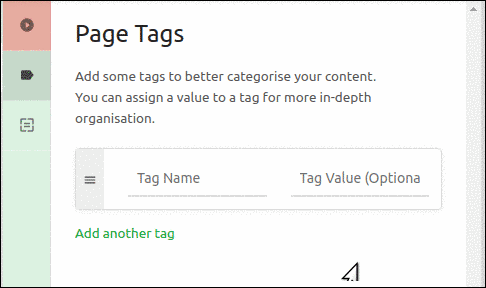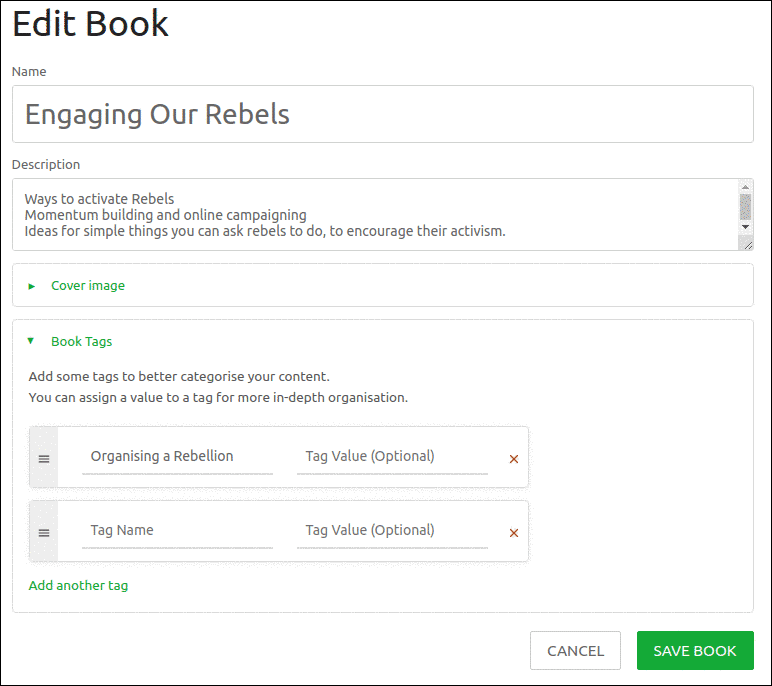Tags and why they're useful
Tags explained
When you create a resource in the Toolkit, you should add one or more "Tag(s)" to help people to find it.
The Toolkit's Shelves are organised in a particular way to reflect an imagined "rebel journey".
However, there will be many times when you, or another rebel, want to group together resources following certain subject areas, or other activities, that draw from a number of different Shelves. Tagging gives you thousands of different ways to combine resources.
Tagging each Page, Book or Chapter that you create allows other Toolkit users to draw together resources in many different ways.
How to add a Tag
On pages you can go to the far right side of the editing screen and open the side bar, revealing the area to use to add a Tag. It looks like this:

A Book (or Chapter) can be Tagged just by selecting "Edit" and adding a tag here:

The following list has been developed to control the number of tags that are used. Whilst you can use any tag you like, we suggest you use at least one tag from this list too.
NB Whilst every Tag listed here is "clickable" i.e. it will search the toolkit for that Tag, this is a new resource, and most of the Tags listed here haven't yet been applied, so will result in a "not found" search.

No Comments